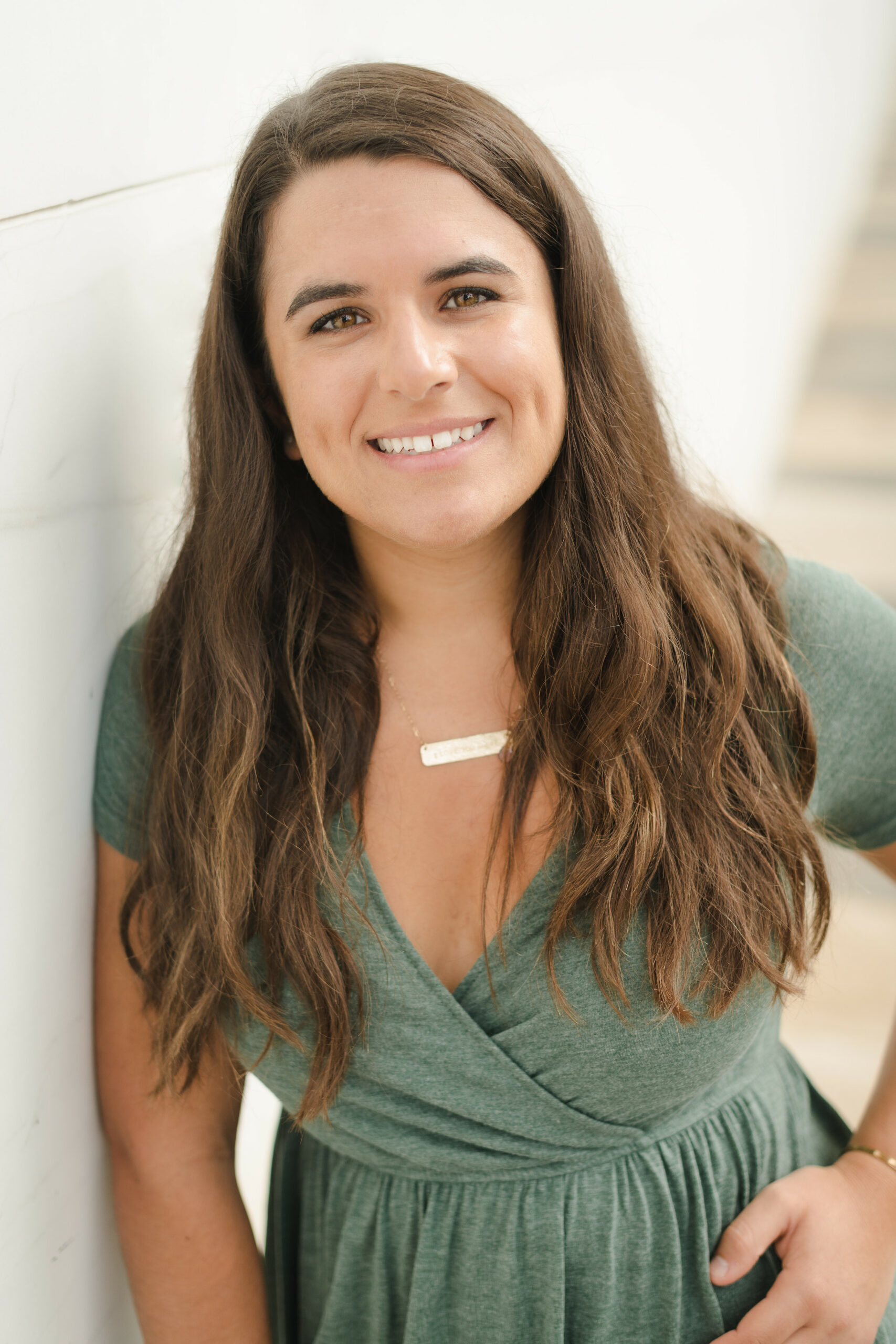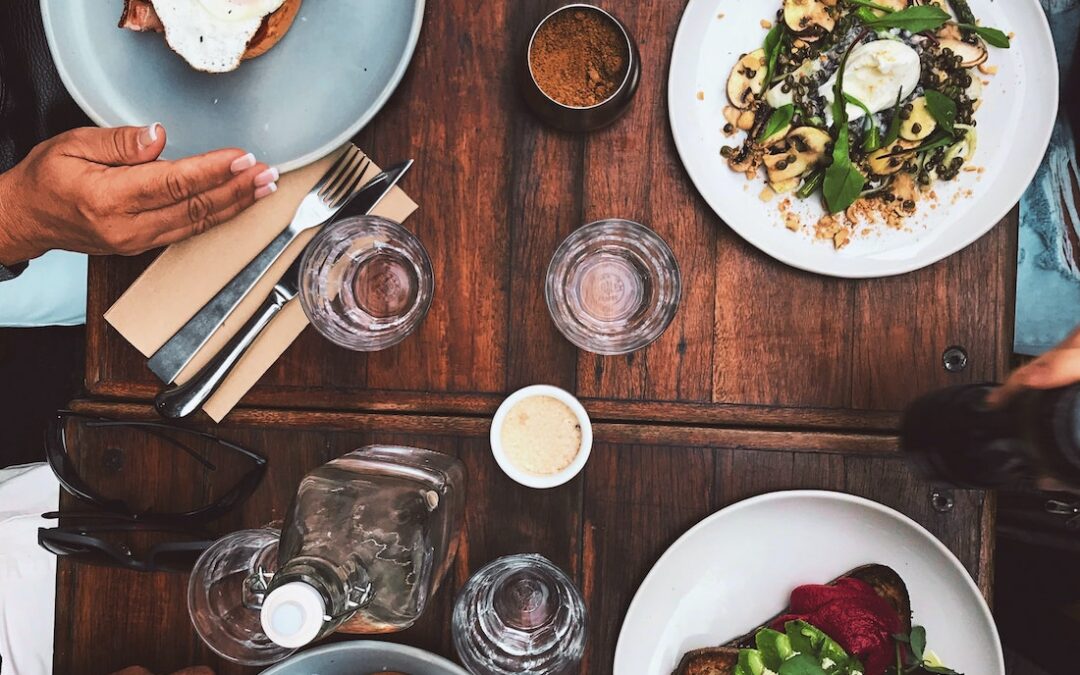We were all born intuitive eaters. Babies are the best at it. They eat when they’re hungry. And stop when they’re full. They rely on their internal body cues to let them know when it’s time to eat or stop eating. As we age, we are exposed to more external cues. Such as social media, comments from friends and family, TV shows, magazines, etc. They tell us how we “should” and “shouldn’t” eat. We start to learn that we should trust these cues. That these external sources know what we need to eat. And our own bodies don’t. It’s not your fault for believing this. Intuitive eating and working with an intuitive eating dietitian can help you get back in touch with those internal cues. Read on to learn how to eat intuitively.
This blog was written by our dietetic intern, Karaline Kelbaugh. It was edited by Alex Raymond, RD, LD, CEDRD-S and Kathryn Karukas, MS, RD, LD.
What is Intuitive Eating?
Intuitive eating is a framework focusing on overall health and wellbeing. It consists of ten principles that encourage you to trust your body. There are no rules on what you can or can’t eat. And there is no labeling of foods as good or bad. Intuitive eating restores the pleasure in eating and movement. And encourages you to do both in ways that feel good to you. It is about being kind to your body. Listening to its cues and allowing yourself to eat unconditionally-without punishment, guilt, or shame. Read more about this in our blog, Principles of Intuitive Eating.
So, how does a person become an intuitive eater again?
Start with Principle One: Reject the Diet Mentality
Health is Multifactorial
Intuitive eating is not a diet. It is not a weight loss tool. In fact, one of the most important aspects of intuitive eating is the first principle-Reject the Diet Mentality. Diet culture tells us that being skinny equates to being healthy. This is simply not true! Health conditions such as hypertension, heart disease, and coronary artery disease. Which are often blamed on a person’s weight or size. Are seen in individuals of various sizes.
Health is multidimensional. And so much more than just nutrition and exercise. There are a multitude of factors that impact health. Many of which we have no control over. Such as socioeconomic status, lived experiences, genetics, and diet history. Just to name a few. We cannot tell a person’s health status simply by looking at them. We should not be focusing on weight as the primary indicator of someone’s health status. Check out our blog on more Health at Every Sizeⓒ Myths.
Dieting is NOT Sustainable
Additionally, diets are not sustainable long term. Most people deprive themselves and feel miserable while dieting. The, they gain back any weight they lost once they discontinue their diet and resume their normal eating habits. They may then start their diet back up again to lose this weight, and the “yo-yo dieting” cycle repeats itself again and again. Wouldn’t it be better to focus on a lifestyle that actually promotes being happy AND healthy?
In practical terms, rejecting the diet mentality means stopping the focus on weight loss. The number on the scale is not the defining characteristic of your overall health. Focus instead on consistently eating enough food. Eating a variety of food. And eating foods that you enjoy. Not sure what enough looks like for you? Reach out to us Courage to Nourish to work individually with one of our intuitive eating dietitians.
Educate yourself with intuitive eating resources:
Some resources to learn more about intuitive eating include the book that started it all. Intuitive Eating: A Revolutionary Anti-Diet Approach, written by registered dietitians, Evelyn Tribole and Elyse Resch. Blogs such as The Joy of Eating, Danielle Lithwick and Eating Disorder Hope can also provide additional information on intuitive eating and related concepts. And of course, you can also learn a little more on the topic with past blog articles on our own site. Intuitive Eating 101, Why Diets Don’t Work, and Principles of Intuitive Eating. Our dietitian team here at Courage to Nourish would love to point you in the right direction and provide other great resources, so be sure to contact us with any questions you may have. You can even sign up for our newsletter to get monthly emails about eating disorder recovery, intuitive eating, and more!
Meet with an Intuitive Eating Dietitian:
As you discover more about the concepts of intuitive eating, try not to compare yourself to anyone else. The purpose is for you to learn what health looks like for you. (And pursuing health is not a moral obligation!) Meeting regularly with an intuitive eating dietitian is beneficial. Not only to help you talk out and determine your values and how to set realistic goals. But also to provide encouragement to you along the way. If you would like to start this process with one of the wonderful dietitians on our team, please reach out to us! We are happy to help!
Develop a Positive Support System!
Breaking up with diet culture is a process. And can be hard to do when we’re surrounded by it everywhere- on social media, in society, at school or work, and even sometimes at home. A primary care doctor, therapist, and dietitian that also believe in intuitive eating are great additions to this support system. Finding friends, family members or peers that are on this same journey can be helpful. Support groups also are great additions to individual care. And can help to feel like you aren’t alone. We offer three support groups here at Courage to Nourish. Reach out to learn more!
Remember: Intuitive Eating is a Journey
And finally, remember not to be so hard on yourself! Remind yourself that learning how to eat intuitively is a journey. Unlearning and relearning concepts that have been ingrained in you for so long is hard work. And it takes time and practice. It is perfectly okay if you are not where you want to be right now– you will get there in time. So take a deep breath, give yourself a little grace, and take the next step toward redefining what being healthy means for you!
Reminders
Courage to Nourish would love to support you. Especially in navigating the challenges in becoming an intuitive eater. Visit our website at www.couragetonourish.com. Or contact us at hello@couragetonourish.com. Or call 301-202-4523.
Our eating disorder dietitian nutritionists are located in College Park, Maryland, Columbia, Maryland, and Alexandria, Virginia, Colorado, and Pennsylvania. Read more about the Courage to Nourish team here. We’d love to support you in eating disorder recovery.
Also, sign up for our client or clinician newsletter!

Kathryn is a weight-inclusive, anti-diet eating disorder dietitian at Courage to Nourish. She specializes in working with adolescents and families, athletes, and individuals recovering from ARFID. Kathryn sees clients in person at the Columbia, Maryland office and virtually throughout Virginia, Pennsylvania, DC, and Maryland. To schedule a discovery call with Kathryn, click here.

